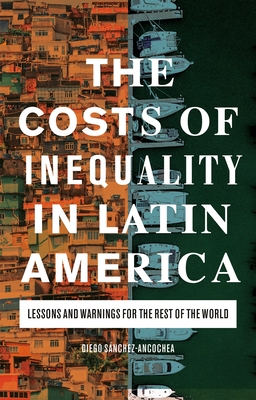Expedite your nonfiction book discovery process with Readara interviews, summaries and recommendations, Broaden your knowledge and gain insights from leading experts and scholars
In-depth, hour-long interviews with notable nonfiction authors, Gain new perspectives and ideas from the writer’s expertise and research, Valuable resource for readers and researchers
Optimize your book discovery process, Four-to eight-page summaries prepared by subject matter experts, Quickly review the book’s central messages and range of content
Books are handpicked covering a wide range of important categories and topics, Selected authors are subject experts, field professionals, or distinguished academics
Our editorial team includes books offering insights, unique views and researched-narratives in categories, Trade shows and book fairs, Book signings and in person author talks,Webinars and online events
Connect with editors and designers,Discover PR & marketing services providers, Source printers and related service providers

The Costs of Inequality in Latin America: Lessons and Warnings for the Rest of the World
Political Science > Public Policy - Economic Policy
- I. B. Tauris & Company
- Paperback
- 9781838606237
- 8.5 X 5.51 X 0.45 inches
- 0.56 pounds
- Political Science > Public Policy - Economic Policy
- (Single Author) Asian American
- English
Readara.com
Book Description
From the United States to the United Kingdom and from China to India, growing inequality has led to social discontent and the emergence of populist parties, also contributing to economic crises. We urgently need a better understanding of the roots and costs of these income gaps. The Costs of Inequality draws on the experience of Latin America, one of the most unequal regions of the world, to demonstrate how inequality has hampered economic growth, contributed to a lack of good jobs, weakened democracy, and led to social divisions and mistrust.
In turn, low growth, exclusionary politics, violence and social mistrust have reinforced inequality, generating various vicious circles. Latin America thus provides a disturbing image of what the future may hold in other countries if we do not act quickly. It also provides some useful lessons on how to fight income concentration and build more equitable societies.
Author Bio
I arrived at the University of Oxford in 2008 after five years at the Institute for the Study of the Americas (University of London). I hold a joint appointment at OSGA and the Department of International Development (where I am currently Head). I am also a member of the University’s Council and a Fellow of St Antony’s College. I love Oxford’s commitment to multidisciplinary area studies and to a deeper understanding of the economic, political and social challenges in different parts of the global South. It is a pleasure to work with colleagues who share the same enthusiasm in both departments.
I am a rare economist whose research is mainly based on qualitative comparative case studies. I am interested in how countries, particularly in the global South can promote equality and believe that this depends as much on the right policies as on the right political coalitions and institutions. My research on income inequality, globalization, industrial policy and social policy has been published in different international journals including World Development, the Journal of Latin American Studies, Economy and Society and the Latin American Research Review as well as in four books I have co-edited. I also do periodic consultancies on some of these issues for CEPAL, ILO, Oxford Analytica, UNDP and other organisations.
Together with Juliana Martinez Franzoni (University of Costa Rica), I have published two monographs. Our first book Good Jobs and Social Services: How Costa Rica Achieved the Elusive Double Incorporation (Palgrave, 2013) explored Costa Rica’s success in incorporating people to the labour market with goods jobs while simultaneously providing social services. The Quest for Universal Social Policy in the South: Actors, Ideas and Architectures (CUP, 2016) studied the economic and political determinants of pro-equity universal social policies.
Based on a comparative case study of Costa Rica, Mauritius, South Korea and Uruguay--four countries with similar commitment to social policy but different degrees of universalism--and a historical exploration of Costa Rica's experience, we highlight the key role of the policy architectures and of the state actors that (re) design them. We used insights from the book to prepare two background papers that contributed to shape the Human Development Reports in 2016 and 2019. Juliana and I are now exploring together the potential role of social pacts to promote redistribution in Latin America (after writing a working paper on the subject for the Economic Commission of Latin America and the Caribbean).
Another strand of my current research focuses on the political economy of income inequality. I have just published the book The Costs of Inequality in Latin America: Lessons and Warnings for the Rest of the World (Bloomsbury), which was selected as one of the best Economics books in 2020 by the Financial Times. I am also exploring why some Latin American countries are more unequal than others, trying to link political and economic factors and using mixed methods.
In addition to inequality, I am also enthusiastic about advancing multidisciplinary studies, something I have done as director of the Latin American Centre (2015-18), co-editor of the Journal of Latin American Studies (2015-19), Treasurer of the Latin American Studies Association (2017-20), Visiting Fellow at the Kellogg Institute of the University of Notre Dame and associate editor of Oxford Development Studies.
I spend most of my spare time with my wife Rosa and my daughters Silvia and Maya. I would love to play more basketball but end up spending more time running, reading spy books and biographies, practising mindfulness, and thinking about political economy.
Source: University of Oxford - Latin American Centre
Videos










Community reviews
No Community reviews

